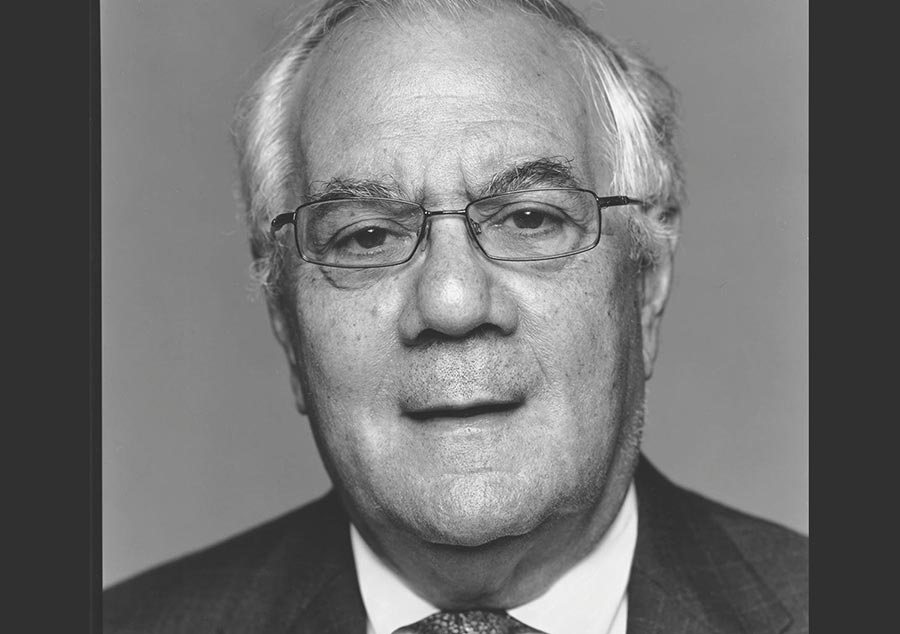It has been two years since the first openly gay Congressmember retired after more than three decades in office. Yes, we are talking about Barney Frank, the famously outspoken Democrat whose career spans some of the most important moments in political history.
His new memoir, “Frank: A Life in Politics from the Great Society to Same-Sex Marriage,” recounts the journey that ultimately led him to come out of the closet and to champion LGBT-rights legislation. Frank will discuss the book with WHYY’s Newsworks.org’s national political columnist, Dick Polman, before a sold-out audience March 23 at the Free Library of Philadelphia.
The book retains the signature Frank style many have come to revere — or, in critics’ cases, revile: eloquent but rough around the edges, passionate to the point of contention, yet belied by a brilliance beyond measure. It’s a great read for Frank fans and gives a compelling glimpse into politics that, for some, might restore a little faith in Uncle Sam.
Frank said the book serves as a blue print for those aspiring to public office and provides a guide of how to achieve change while you are there.
Frank said he was drawn to politics because he wanted to change public policy in the direction of greater fairness.
“I wanted to keep the pendulum swinging in that direction,” he said. “I wanted to make the case that we have made a mistake in thinking that the government was our enemy, that it could potentially be an indispensible force for good.”
When Frank took office in 1980, he now admits, he had some unrealistically high hopes, especially at a time when people were becoming increasingly skeptical of government.
“Liberalism was explicitly repudiated in the ’88 election and I was a little slow to realize just how skeptical people were becoming,” said Frank. “It was the beginning of an uphill battle in public opinion.”
Frank said he needed to become more strategic in his support of certain issues. It wasn’t enough to be flagrantly liberal anymore; he had to become, as he calls it, a “liberal, electable candidate.”
Up until 1987, when he came out as gay, being electable included staying in the closet, which caused much personal turmoil for Frank during his early years in office.
“I initially thought people would think less of me because of my sexuality, and that it would make me less influential,” Frank said. “But when I came out, it became something I could use to humanize the issue and lobby for LGBT rights.”
Electable also meant learning to soften the shaper edges of his robust personality.
“I was too argumentative at first,” said Frank. “I didn’t curb my personality to make myself likeable.
“Being passionate about issues is a job requirement,” Frank added. “But figuring out how to accomplish those things is the hard part.”
While it may have taken Frank a while to learn that lesson, when he did, he was able to help enact milestone changes in government, such as the 2010 Dodd-Frank Act in the wake of the 2008 financial crisis, which brought about the most significant reform on Wall Street since the Great Depression. He also pushed for the repeal of “Don’t Ask, Don’t Tell.”
These days, Frank regularly contributes to MSNBC and CNBC and is traveling to promote his book. He said he is enjoying the slightly slower pace of semi-retirement while splitting his time between Newton, Mass., and Ogunquit, Maine, with his husband, Jim Ready.
On the state of current LGBT affairs, Frank is optimistic for a positive U.S. Supreme Court decision this summer in favor of nationwide marriage equality.
“Justice [Anthony] Kennedy has been a very strong supporter of pretty much every LGBT-related case,” Frank said.
He also pointed to SCOTUS’ decision to deny several conservative states’ requests to stay lower courts’ ruling as a good indicator that they will rule in favor of marriage equality.
“They would not have created all that precedent and let all those people get married if they were going to reverse course this summer,” said Frank.
And the next big challenge for LGBTs? Nationwide employment discrimination protection.
“It’s still a problem and still legal in most states,” said Frank. “Though I don’t think a fully inclusive anti-discrimination bill at the federal level will happen until we have a Democratic House, Senate and president.”
“Frank: A Life in Politics from the Great Society to Same-Sex Marriage” is available online and at all major booksellers. For more information on Frank’s upcoming visit to Philadelphia, visit www.freelibrary.org.

